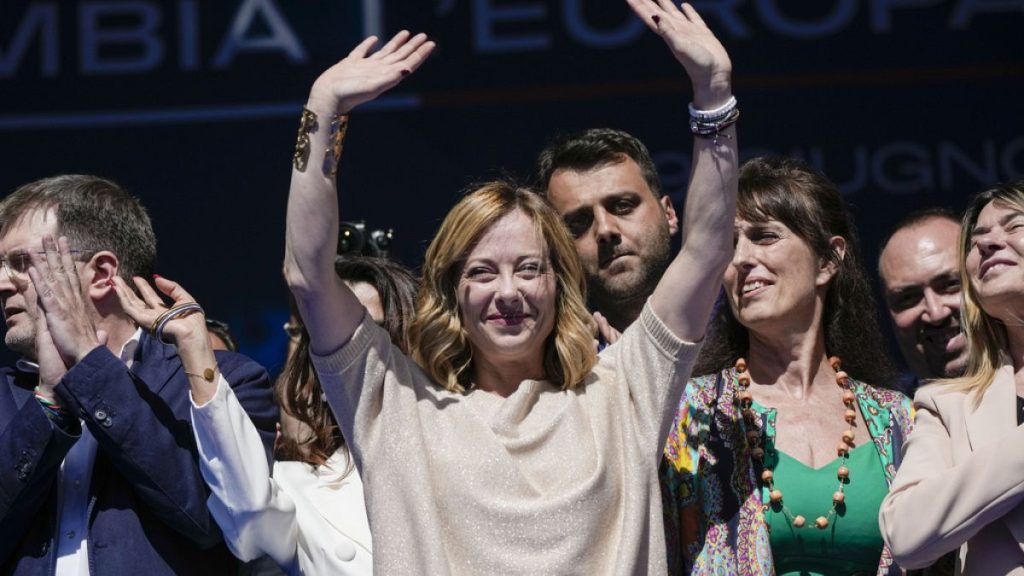Georgina Meloni’s Fratelli d’Italia party emerged victorious in the European elections in Italy, capturing over 28% of the votes. This victory not only provides a significant domestic boost to Meloni but also solidifies her position as a key player in the European Parliament. The centre-left opposition PD secured 23% of votes, while the populist Five Star Movement saw a dip in support, earning only 10% of votes. Meloni’s partners, Forza Italia and Lega party, had a mixed showing, with Lega experiencing a notable decrease in support compared to the 2019 election.
The strong support for Fratelli d’Italia, in contrast to its coalition partners, suggests a sensitivity within the Italian centre-right to leadership changes. This disparity in party results could lead to tensions within the governing coalition, as other parties may feel their influence waning in light of Meloni’s overwhelming success. Meloni’s position as kingmaker in the European elections has made her a sought-after figure, with both Ursula von der Leyen and Marine Le Pen vying for her support. Von der Leyen, seeking a second term as president of the European Commission, emphasized her trust in Meloni as a reliable partner in Brussels, despite Meloni’s shift towards a more pro-EU stance.
Meloni’s victory marks a significant moment for the far-right movement in Italy, positioning her as a powerful figure in both domestic and European politics. The election results highlight the decline of other prominent parties, such as the Lega party led by Matteo Salvini, which experienced a sharp drop in support compared to previous elections. As Meloni garners support from various factions within the Italian political landscape, tensions may arise within the governing coalition, as other parties grapple with their diminishing influence. Meloni’s emergence as a key player in the European Parliament has made her a crucial figure for alliances and negotiations within the EU.
As Meloni navigates her newfound influence in European politics, she has been courted by prominent figures such as Ursula von der Leyen and Marine Le Pen, seeking her support for their respective agendas. Von der Leyen’s bid for a second term as president of the European Commission hinges on Meloni’s backing, highlighting Meloni’s pivotal role in shaping the future direction of the EU. Despite her initial Eurosceptic views, Meloni has embraced a more pro-EU stance in recent years, signaling a shift in her approach to European integration. Meloni’s willingness to engage with European leaders and collaborate on key issues demonstrates her growing influence and relevance on the European stage.
The European elections in Italy have solidified Georgina Meloni’s position as a dominant force in both domestic and European politics. Her far-right Fratelli d’Italia party’s resounding victory has reshaped the political landscape in Italy, with Meloni emerging as a key player within the governing coalition. As tensions simmer within the coalition, Meloni’s role as a kingmaker and influential figure in the European Parliament remains pivotal in shaping the future direction of the EU. With prominent leaders seeking her support and alliances, Meloni’s strategic positioning and evolving stance on European integration highlight her growing significance in shaping European politics.


